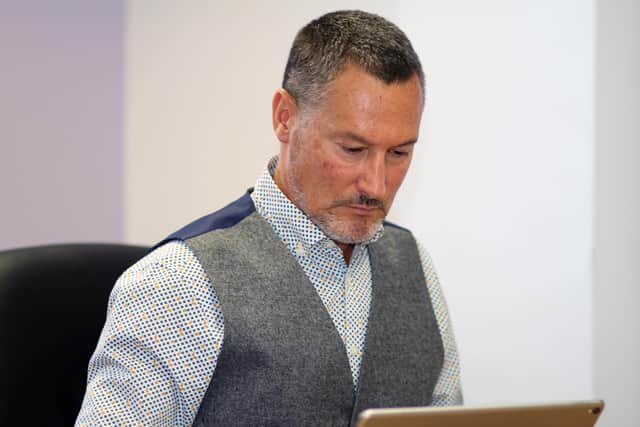East Lancashire Hospitals chief: We will be in a very grave place if Covid cases continue to rise
and live on Freeview channel 276
Kevin McGee, who is joint chief executive of East Lancashire Hospitals NHS Trust and Blackpool Teaching Hospitals NHS Foundation Trust, also chairs the Lancashire and South Cumbria group monitoring activity in hospitals across the patch.
Speaking on Radio Lancashire, Mr McGee described the intense pressure being felt by staff because of the rapidly rising number of people needing hospital treatment for Covid-19.
Advertisement
Hide AdAdvertisement
Hide AdHe said the NHS team was tired and frustrating as well as dealing with the impacts of Covid on their own lives and he urged local people to support them by following the rules.


“I cannot over exaggerate how pressurised our hospitals are at this point. At the worst point in the pandemic before Christmas, we had 650 Covid-19 patients in our hospitals across Lancashire and South Cumbria; we have now got 730 and that number is increasing daily," he said.
"We are seeing the most pressure on Critical Care, where the number of beds for patients who need the highest level of clinical intervention are extremely tight now.
“Whilst our numbers have been tracking below London up to this point, our community infections are now increasing. I don’t think we have reached the peak in the North West or in Lancashire yet and if these numbers continue to grow, we will be in a very grave place.
Advertisement
Hide AdAdvertisement
Hide Ad“As community rates rise, our staff sickness levels also increase because our staff live in our communities so they are more vulnerable. Our staff are also extremely tired, anxious and frustrated.
"They are tired because they have been working at this now for nearly a year and dealing with the pandemic, they are anxious because of what is going to happen over the next few weeks and they are frustrated when they see people denying that we even have a problem and not following the rules and the guidance.
"I can assure everybody that we have a significant problem and our hospitals are under severe pressure.
“Of course, we are always busy, especially at this time of year, and the 700 beds occupied by really poorly Covid patients that I have already mentioned are in addition to this. That level of additional strain on a system that is already pressurised is extreme.
Advertisement
Hide AdAdvertisement
Hide Ad“To try and ease this, we are pushing on and trying to vaccinate our staff as quickly as possible. We have made good progress for staff, nursing home staff and patients and for the over 80s. So we are really kicking on with the vaccination and are hopeful to have all staff vaccinated within the next four to five weeks.
“In the first wave of the pandemic, we did stand down quite a lot of routine, non-urgent activity. We have since tried to reinstate and keep as much of this going as much as possible but there will come a point where we have to stand down more routine work.
"We have plans in place to give us enough beds if the numbers continue to rise, but our rate limiting factor will always come back to staff.
"And our staff, as I have already mentioned, are incredibly tired; there are high sickness rates and we only have a limited amount we can stretch. So, there will be some difficult choices about what activity that we will have to stand down if the numbers continue to increase.
Advertisement
Hide AdAdvertisement
Hide Ad“The single one thing that the community can do to help us give them the treatment they need is to stay at home. The more we can reduce the interaction between groups and individuals, the better it will be.
"If you do have to go out, please follow the social distancing guidance, always wear a mask and wash hands very regularly. But I think we are at a point now where we have to say to people, if you can please stay home.
“To quote Professor Chris Whitty, 'This is everybody’s problem’.”
Comment Guidelines
National World encourages reader discussion on our stories. User feedback, insights and back-and-forth exchanges add a rich layer of context to reporting. Please review our Community Guidelines before commenting.